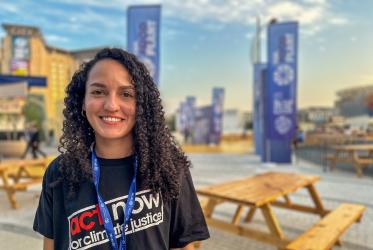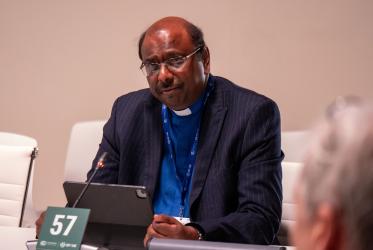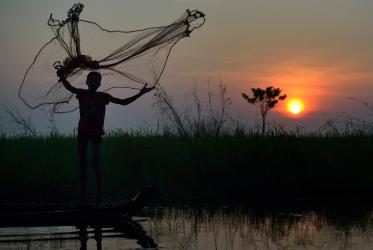Displaying 1 - 20 of 125
Que peuvent faire les Églises pour prévenir l’esclavage moderne?
26 February 2024
¿Qué pueden hacer las iglesias para prevenir la esclavitud moderna?
26 February 2024
Was können Kirchen unternehmen, um moderne Sklaverei zu verhindern?
26 February 2024
What can churches do to prevent modern slavery?
22 February 2024
Ellyanne Chlystun-Githae Wanjiku to COP28: “listen more to children”
13 December 2023
At COP28, WCC general secretary hopes for “less talk and more walk”
01 December 2023
ACT Alliance general secretary: “equity is not negotiable”
26 September 2023










